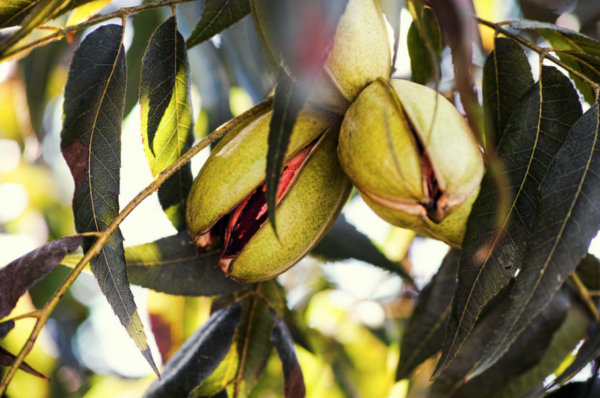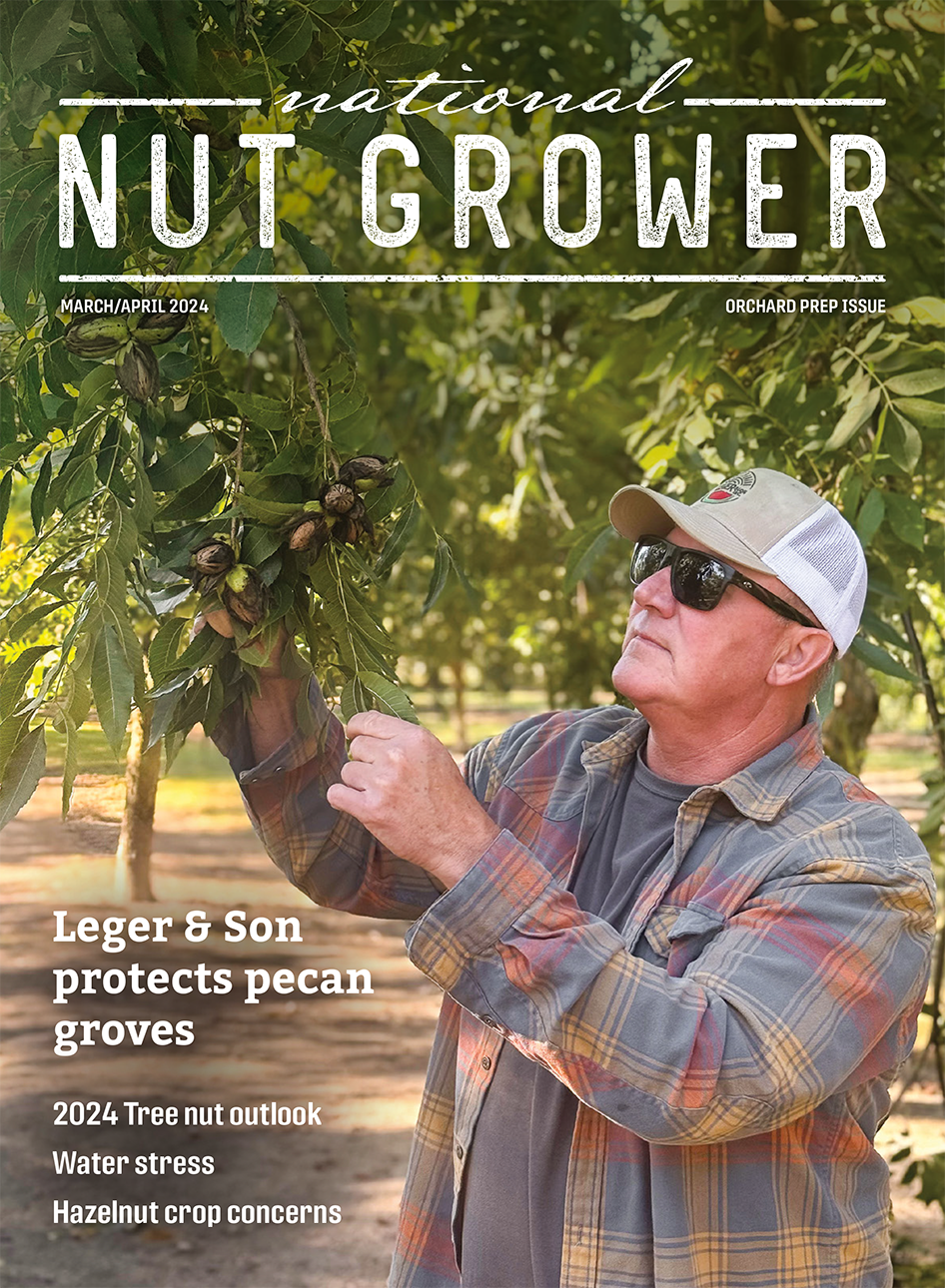
Sep 15, 2021Pecan trees showing good crop potential says Texas A&M
Texas producers expect above-average yields and quality from their pecan trees this season, and consumers should expect decent prices for the nut this fall, according to a Texas A&M AgriLife Extension Service expert.
Pecan trees benefited from early season rains across the state, but most orchards needed rainfall as nuts enter a critical kernel filling stage that requires water.
Larry Stein, AgriLife Extension horticulturist, Uvalde, said the pecan crop was progressing well and that early maturing varieties like Pawnee were opening and nearing harvest. Stein said trees were in excellent shape following good spring and summer rains, and pecan nut samples pulled for observation showed good nut fill.
“It’s not a limb-breaker of a year, although some producers may disagree, but it looks very good for most producers,” he said. “Producers with good management practices avoided pest and disease problems, and it looks to be an excellent crop in both quantity and quality.”
Pecan trees faring well
The early season rains helped trees, Stein said, but they also presented potential problems. Warm, wet weather was ideal for scab, which can cause lesions on the shucks and interfere with the nut fill process.
Stein said scab was reported in South Texas and other drier areas that rarely deal with the fungal disease. Some pecan varieties – like Western and Wichita – are very susceptible to scab. Susceptible trees and uncontrolled infestations can be a problematic combination for producers.
Light scab infestations cause minimal damage, but heavy infestations can devastate crops. But Stein said most producers stayed on top of it with fungicides.
Producers have also reported heavier infestations of stinkbugs, which can cause black spots on the pecan kernel, Stein said. The spots hurt aesthetics, cause a bitter taste and make marketing pecans more difficult and can result in lower prices.
However, most commercial producers maintain aggressive monitoring and control regimens for insects like pecan nut casebearer and stinkbugs as well as for diseases, Stein said.
There are typically three generations of pecan nut casebearers producers monitor for each growing season, he said. A moth deposits pecan nut casebearer eggs, and the larvae bore into the nut to feed. They can be the most devastating insect pest to a pecan orchard, so producers monitor moth numbers closely and enact proactive control methods.
“The first generation typically shows up in early to mid-May, and 42 days later we see the second generation, and a lot of orchards will see a third,” he said. “But we’ve not seen any real significant numbers this year, and I think it correlates with how producers stick to their control regimens.”
Good rain good for pecan trees
Despite the good crop conditions, Stein said Texas pecan orchards could use a good general rain to help kernel fill. Most commercial orchards are fully irrigated, but the water can only supplement what nature provides.
Below-average temperatures have helped soil moisture levels, but conditions are drying, and irrigation alone is not enough to meet ideal maturation requirements, he said.
“Some orchards have caught a rain here and there, but most have not gotten much rain over the last few weeks,” he said. “This is a key time for pecans, and they need water to fill the kernel and to help the shucks open as they swell.”
Stein said the tropical storm brewing in the Gulf of Mexico should deliver good rains for many pecan orchards. But there were concerns about heavy winds thinning nut clusters and damaging trees.
Pecan prices better for growers
Early indications show the market will be better for pecan growers than the last few years, Stein said. But consumers should also be able to find decent prices for the nuts, though good pecans will likely fetch top dollar.
Stein said the trade war with China continues to have lingering effects on the pecan market. Trade tariffs jumped from 17% to 47% during the dispute and remain at that level.
Prices have been horrible for commercial growers since Chinese market demand fell, Stein said.
“Retail prices held steady the last few years, and that’s been bad for pecan producers,” he said. “The tariff really put the quietus on the pecan market.”
– Adam Russell, Texas A&M University







